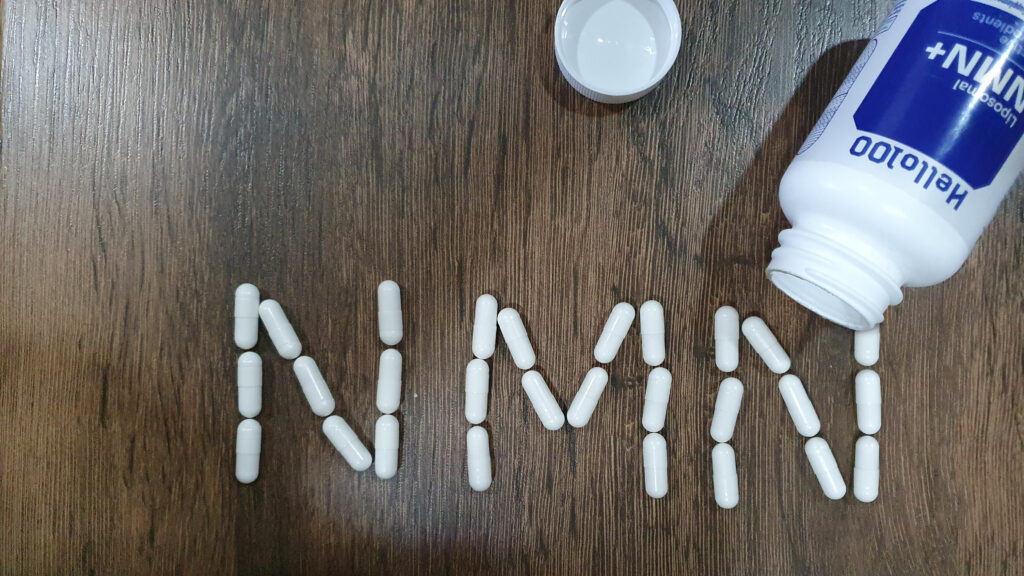How Are NAD+ And Vitamin B12 Connected To Better Sleep?
Lifestyle • March 28, 2022 • 9min read

The Importance Of NAD+ And Vitamin B12 For Better Sleep
Health is not only the absence of disease. It is the combination of proper levels of nutrients, exercise, mental stability, and of course, sleep. The latter is essential for healing and regenerating energy.
Yet, not getting enough sleep can be devastating and lead to drowsiness, fatigue, and possible depression. Deprived sleep, meaning waking up 2 to 3 times at night and struggling to fall asleep again, may lead to many aging disorders.
Numerous studies reason the importance of NAD+ levels and Vitamin B12 sufficiency for quality sleep and high energy levels during the daytime. Besides improving age-related mitochondrial disorders and preventing premature cellular senescence, high NAD+ levels and B12 supplementation can stabilize your circadian rhythms and be beneficial for sound sleep, maintaining deep sleep during the whole night.
The B12 deficiency may lead to melatonin production shortage, insomnia, and further possible cardiovascular diseases. But, a wise supplementation of Vitamin B12 (also known as cobalamin) plays an important role in effectively improving your sleep and overall well-being.
The other culprit of bad sleep is low values of NAD+. Here is where NMN food supplements come to rescue your sleep and energy levels, boosting SIRT1 genes and NAD+ production.
Eventually, you can refine your sleeping pattern by nurturing your body with NAD+ precursors and boosting melatonin production through Vitamin B12 supplementation.
How Is NAD+ Connected To Insomnia And Sleep Quality?
Stress, restless mind, and body can result in insomnia and low energy levels the other day. Aging and poor sleep quality are intertwined adversities leading to low levels of NAD+ in your body and insomnia. In its turn, insomnia or lack of at least 7 hours of sleep at night becomes one of the causes of accelerated aging and numerous aging diseases.
NAD+ (nicotinamide adenine dinucleotide) is our life molecule, meaning without which we would die in seconds. Plus, it is a circadian molecule controlling our sleep-wake pattern by monitoring cellular functions and playing a critical role in maintaining mitochondrial homeostasis.
Therefore, keeping elevated NAD+ levels will beneficially contribute to mitochondrial functions to slow down aging. And also, high NAD+ levels will help our body better communicate circadian rhythms with cellular energy production for improving sleep quality and alleviating disastrous consequences of insomnia.

What Does Result In Insomnia?
Fatigue, deprived sleep, and insomnia are gaining notorious popularity among adults. This leads to mental disorders, depression, and premature aging resulting in increased mortality rates. Other terminal outcomes of deprived sleep are diabetes, oxidative stress, and cardiovascular diseases.
Insomnia can result from low NAD+ levels, chronic inflammation, restless leg syndrome, stress, and poor sleeping habits. Other reasons contributing to insomnia include
- Low levels of melatonin production
- Hormonal imbalance
- Low level of necessary nutrients
A study suggests that 36.2% of adults complain of insomnia due to physical and mental fatigue. In the same study, scientists demonstrated how low NAD+ value may contribute to low energy levels, fatigue, drowsiness during the day, poor sleep quality, and insomnia at night. All of these factors accelerate the aging process.
Another study conducted with mammals demonstrates how little, then constant sleep deprivation affects these life forms’ health and lifespan. That flies sleep is not a well-known fact, but now scientists also documented high oxidative stress among flies with deprived sleep. The same research on mice showed accumulated ROS (reactive oxidative species) levels, particularly in the gut.
Scientists concluded that life expectancy and mortality rates raises among flies and mice with deprived sleep due to oxidative stress. To prevent this from happening scientists intervened with antioxidants elevating the lifespan of the animal study subjects.
As a solution to better sleep, the majority of older adults prefer using pills ignoring their side effects. In fact, there is a risk of fainting and cognitive disorder due to the usage of sleeping pills. As an alternative, scientists suggest solving sleeping disorders at an earlier stage. Hence…
If you do not maintain proper nighttime sleep quality you will not be able to maintain high NAD+ levels, thereby, accelerating premature aging. Furthermore, aging goes hand in hand with poor sleep quality and low NAD+ levels leading to numerous disorders. Is there a solution?
NAD+ And Sleep
NAD+ levels and sleep quality are intertwined, meaning they are dependent on each other’s balance in the human body. Also, NAD+ plays a central role in circadian rhythms, hence naturally regulating your waking and sleeping schedule.
Fortunately, it has been ascertained that NMN intake positively affects NAD+ increase, and circadian rhythm monitoring, helping to defy fatigue and boost endurance. NMN food supplements have been demonstrated to increase the activity of the longevity gene Sirtuins, increase mitochondrial function and sleep quality.
In the sense of Sirtuin genes, SIRT1 being directly connected to the hypothalamus (a small region in the brain monitoring hormonal processes) is responsible for regulating your brain activity and your body’s sleeping and waking schedule.
Losing efficient SIRT1 activity and NAD values will lead not only to insufficient sleep but also premature aging. Conversely, SIRT1 and NAD+ enhancement through NMN supplementation may boost physical activity during the daytime and deeper sleep at night.
Studies also show that defying age-induced physiological and psychological disorders through NMN intervention for NAD+ augmentation may alleviate skeletal dysfunction and chronic inflammation, strengthen muscle endurance, and harmonize circadian rhythms for better sleep.

Vitamin B12 And Sleep
Another cause of insomnia may be Vitamin B12 deficiency. Although vitamins and minerals are not specifically related to sleep deprivation, B12 was established to be a cause of poor sleep quality and longer sleep latency.
Vitamin B12 or cobalamin is a vitamin that can be obtained from food in analog forms (similar to B12 chemical structure but not containing all of the B12 health benefits) or through bioavailable supplements. Vitamin B12 supplies in the human body are important for relieving sleep difficulties and energy production.
Among older adults, fatigue and sleepiness are common events during the day provoking zero physical activity and unstable muscle endurance. Sleep deprivation and fatigue being intertwined may be disentangled through B12 intervention, balanced nutrition, and an active lifestyle.
What is more, the sleep hormone melatonin production is observed to decrease with age, due to neurodegenerative diseases such as Alzheimer’s, mood disorders, and type 2 diabetes. The production of melatonin is highly dependent on the presence of Vitamin B12 in the human body. But what if your body does not produce enough melatonin and you do not gain enough sleep?
Sadly enough, even one night of insufficient sleep may lead to developing aging diseases induced by the increased production of amyloid-beta. The accumulation of amyloid-beta plaques has been found in the brain of patients with Alzheimer’s disease. These are the hallmarks of aging and one of the main causes of cognitive disbalance and dementia.
Contrary, a diet rich in vitamin B12 (methylcobalamin) shows not only significantly heightened ATP levels but also balanced amyloid-beta production. In addition, B12 supplementation and proper sleep help the human organism regulate mitochondrial functions, cognitive and physiological activities promoting human healthspan.
Several clinical studies with people having trouble falling asleep, gaining 7- 8 hours of sleep, or waking up in the morning reported the importance of methylcobalamin (B12) in resetting sleep-wake rhythm. And in the recently published study scientists succeeded to show high B12 levels, physical activity, and cognitive function in good sleepers contrary to that of poor sleepers.
As we already mentioned, one of the reasons for bad sleep is low melatonin levels which can be boosted through Vitamin B12 supplementation. For this purpose, a study with men and women of different ages who underwent four-week oral administration of B12 or methylcobalamin indicated a substantial increase in plasma melatonin production, thus, sleep-wake rhythm advancement. Hence…
B12 vitamins can be used to not only boost energy levels, protect brain nerves, and even treat Alzheimer’s disease but also normalize sleep patterns and add up years to your lifespan.
It is worth mentioning that the methylcobalamin form of B12 (methyl B12) is more bioavailable and effective for restoring your sleep. Also, to boost this result liposomal form of methyl B12 is believed to effectively deliver this macronutrient to cells and body tissues.

Important Takeaways For Better Sleep
The above-discussed studies and health-related facts, once again claim the restorative importance of sleep. As we have learned, NAD+ production and Vitamin B12 supplementation play an irreplaceable role in maintaining healthy aging, balanced sleep patterns, and energy levels.
Thereby, we must consider pursuing a proper lifestyle and habits, reasonable nutrition rich in vitamins to boost our NAD and B12 levels. For this purpose, here are detailed takeaways you can practice to enhance your healthspan through sound sleep.
- Eat well. Enjoy a meal containing NMN sources and necessary vitamins. But do not eat before sleep.
- Exercise at least 30 minutes daily not to lose your muscle strength and physical stability.
- Intervene NAD+ production. NAD+ is a circadian molecule, meaning its levels ascend right after you wake up, and then during the second half of the day. You can bolster its production through NMN and Vitamin B12 supplements taking them when you wake up and in the afternoon.
- Reset your circadian rhythms with blue lights. Go out for a walk early in the morning to reset your sleep-wake clock.
- Keep your brain healthy coping with anxiety, stress, and regulating sleep through meditation.
Until today, numerous studies were conducted to show the adverse effects of sleep deprivation leading to diabetes, oxidative stress, and a 30% higher mortality rate.
What we know is, that Vitamin B12 and high NAD+ levels are closely connected with melatonin production and better sleep. Yet, you may not receive proper amounts of Vitamin B12 from your food, so, you may consider taking Vitamin B12 supplements.
Also, to boost your NAD+ levels you may need NAD+ precursor NMN which can also be found in certain types of foods. But again, the amount you may get from food may not suffice for enhancing NAD+ levels. Get your bottle of NAD+ booster to monitor and normalize your circadian rhythms and help you get better and sound sleep.



